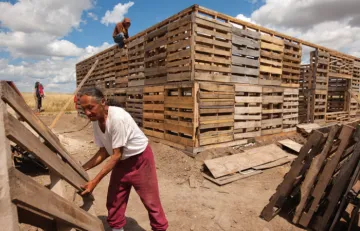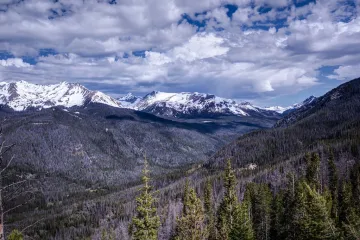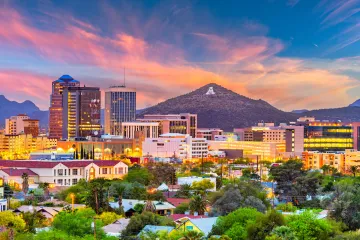
Photo credit: Paul Ijsendoorn on Pexels
While many of the University of Arizona's collective research and initiatives relevant to climate adaptation focus on regional resilience and especially the U.S. Southwest, projects span a wide diversity of disciplines and geographic areas in the following themes.
Within each theme area, click on the project name for additional information.

Adaptation and International Development
Multidisciplinary teams of climate, sectoral, and social scientists from UA collaborate with regional and international partners to produce and provide research-based decision support to populations impacted by climate change around the globe. Through co-developed research, product development, capacity building and training, UA experts help build resilience and assist regional-scale partners to scale up successes.

Climate Adaptation and Food Systems
As a Land Grant University, Cooperative Extension has long played a role in working with farmers, ranchers, and communities across the state to share information that helps with drought management, agricultural productivity, pest control, water quality, and water sustainability.

Climate and Health
Human health is strongly influenced by changing climate conditions; both gradual changes brought about by increasing global temperatures that impact weather patterns and the increasing intensity of extreme weather events. These climate effects on health include relatively direct impacts such as increasing frequencies of extreme heat events and flooding and more indirect impacts on air and water quality and the distribution of disease vectors.

Ecosystem Resilience and Adaptation
UA researchers in diverse fields are working to connect science with decision-making to improve its usability and relevance to groups impacted (and disproportionally impacted) by climate change, addressing threats and vulnerabilities to environmental and social systems at multiple scales.

Tribal Resilience and Adaptation
CCASS partners with the Native Nations Climate Adaptation Program (NNCAP), the Southwest Climate Adaptation Science Center (SW CASC), CLIMAS, the Native Nations Institute of the Udall Center, and many other units and researchers across the University of Arizona to assist tribes in climate adaptation particularly through needs assessment, capacity building, vulnerability assessment, and by honoring traditional knowledge.

Urban Resilience
The impacts of climate change on urban systems and the built environment include public health, economic development, infrastructure, transportation, water resources, energy production, biodiversity, energy production, disaster management, food security, and additional stresses. Addressing these impacts in the context of continued urbanization and development of cities across the world is one of the grand challenges of the 21st century.

Water Security, Planning, and Policy
Effective water planning in the face of climate challenges in the arid Southwest, nationally, and beyond U.S. borders goes beyond assessing water quality and supply, and includes consideration of extreme events (e.g., drought, floods, heat), ecosystem needs/services, transboundary waters, stakeholder engagement, and socioeconomic factors.

